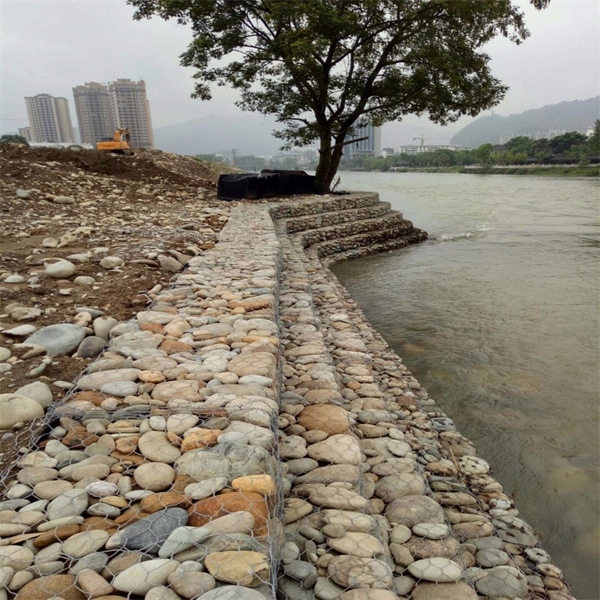des. . 24, 2024 12:01 Back to list
Top Choices for Residential Gabion Walls for Your Outdoor Spaces
The Best Residential Gabion Wall A Comprehensive Guide
In recent years, gabion walls have gained immense popularity in residential landscaping and construction. These structures, made of wire mesh cages filled with rocks, stones, or other materials, not only serve as functional barriers but also enhance the aesthetic appeal of outdoor spaces. This article explores the benefits, design considerations, and installation tips for the best residential gabion wall.
What is a Gabion Wall?
A gabion wall is essentially a gravity wall, constructed from gabions—wire mesh containers filled with stones. The word gabion originates from the Italian word gabbione, meaning large cage. These walls are used for various purposes, including erosion control, drainage, and decorative landscaping. Their flexible design allows them to adapt to different environments and site conditions.
Benefits of Gabion Walls
1. Durability Gabion walls are highly durable and can last for decades if constructed properly. They are resistant to weathering, corrosion, and UV exposure, making them an ideal choice for outdoor applications.
2. Erosion Control The permeable nature of a gabion wall allows water to flow through while trapping sediment and soil, effectively preventing erosion. This can be particularly beneficial in residential areas prone to runoff and flooding.
3. Aesthetic Appeal Gabion walls are versatile and can be designed to complement any landscape. They offer a rustic charm, and the choice of filler stones allows homeowners to customize their appearance, whether they prefer a natural look or something more modern.
4. Eco-Friendly Using natural stones in gabion walls promotes sustainability. They can be filled with locally sourced materials, reducing carbon footprints associated with transportation. Additionally, their porous design allows for groundwater recharge and supports local biodiversity.
5. Cost-Effective Compared to traditional retaining walls made of concrete or masonry, gabion walls can be more affordable. The materials are often readily available, and the labor required is less intensive, making them a cost-effective solution for homeowners.
Design Considerations
When planning a residential gabion wall, several design factors must be taken into account
1. Purpose Determine the primary function of the wall. Is it for erosion control, a decorative feature, or to create a boundary? This will influence the height, width, and design of the wall.
best residential gabion wall

2. Location Analyze the site where the gabion wall will be constructed. Consider factors like soil type, drainage, and surrounding vegetation. Proper drainage is crucial to ensure long-term stability.
3. Height and Thickness Gabion walls can be built to various heights, but taller walls require a wider base for stability. Generally, a height of 1 to 3 feet is ideal for residential properties.
4. Materials Choose appropriate filler materials based on the desired appearance and functionality. Stone sizes can range from small gravel to large boulders, depending on aesthetic preferences and structural requirements.
5. Wire Mesh Quality Use high-quality galvanized or PVC-coated wire mesh to enhance durability and prevent rusting.
Installation Tips
1. Site Preparation Clear the area where the wall will be built. Ensure a level base to provide stability for the gabions.
2. Building the Gabions Assemble the wire mesh cages on-site or purchase pre-fabricated units. Ensure they are secured and tightly packed.
3. Filling the Gabions Fill the cages with selected stones, packing them tightly to prevent movement. Larger stones should be placed at the bottom for added weight and stability.
4. Securing the Walls Stable placement of the gabion walls is essential, particularly if they are intended to hold back soil or act as a retaining wall. You may want to embed a portion of the wall into the ground.
5. Finishing Touches After installation, consider landscaping around the gabion wall to further enhance its appearance. Plants, shrubs, or decorative gravel can complement the structure beautifully.
Conclusion
A well-designed residential gabion wall can provide both functional and aesthetic benefits. By understanding the advantages, design aspects, and installation process, homeowners can create a stunning and durable addition to their outdoor space. Whether for erosion control, private boundaries, or simply as a decorative feature, gabion walls stand out as a versatile solution for modern landscaping.
-
HESCO Gabion Baskets for Coastal Erosion Prevention
NewsAug.22,2025
-
Longevity and Durability of River Rock Gabion Walls
NewsAug.22,2025
-
How to Integrate Gabion 3D Walls in Urban Planning
NewsAug.22,2025
-
Reno Mattress Gabion Applications in Civil Engineering
NewsAug.22,2025
-
How to Install Wire Mesh for Gabion Baskets Properly
NewsAug.22,2025
-
Best Materials for Filling a Chain Link Gabion
NewsAug.22,2025
-
Wire Mesh Thickness Impact on Gabion Wall Load Bearing
NewsAug.12,2025






